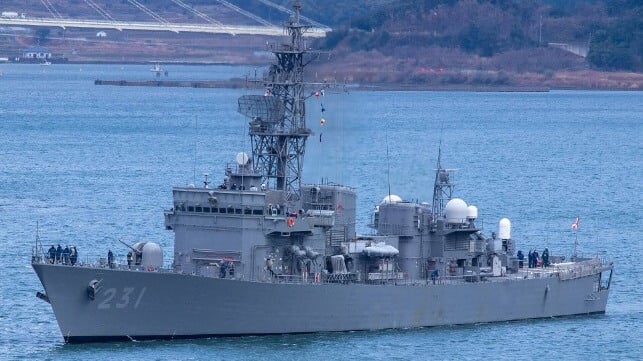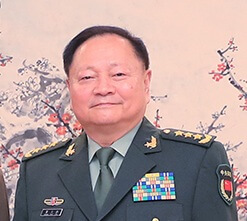Japan May Give Philippine Navy a Major Boost

Japan is planning further assistance to the armed forces of the Philippines through a transfer of up to six Abukuma-class destroyer escorts, which will be available after their replacement by new Mogami-class frigates beginning in 2027.
Japan is also planning to transfer more Beechcraft TC-90 aircraft, augmenting the five that have already been provided since 2018. The Philippines Navy has upgraded these aircraft and employs them in a maritime surveillance role. Japan is already a major supporter of the Philippines armed forces, having supplied air defense radars to the Philippine Air Force and patrol vessels to the Philippine Coast Guard.
Under the government of conservative President Bongbong Marcos, who was elected with an unusually large majority in 2022, defense has acquired a higher priority – prompted by increasingly aggressive action by Chinese maritime forces in disputed areas of the South China Sea, in particular around the Spratly Islands and Second Thomas Shoal. His predecessor, President Rodrigo Duterte, had attempted to adopt a conciliatory response to Chinese actions, which failed to pay dividends. Despite being heavily outnumbered by PLA warships, China Coast Guard cutters and China’s maritime militia trawler fleet, the Philippine Navy has persisted in defending its positions and resupplying its outposts.
China Coast Guard Harasses BFAR Vessels While Distributing Supplies to Filipino Fishermen in Panatag Shoal
— Jay Tarriela (@jaytaryela) June 20, 2025
In support of the “Bagong Pilipinas” vision for food security and national development, the Bureau of Fisheries and Aquatic Resources (BFAR) deployed four vessels—BRP Datu… pic.twitter.com/wJtXg8WIi5
This steadfastness has attracted additional support from Japan and from the United States. In 2023, the Philippines granted the United States access to an additional four military bases, making a total of nine bases from which the United States can now operate.
As part of his new approach, President Marcos has switched the emphasis in Philippines defense planning away from internal security to the Comprehensive Archipelagic Defense Concept. The 10-year plan will strengthen the Philippines’ capability to defend its interests in its Exclusive Economic Zone, and in areas confirmed in 2016 as belonging to the Philippines by the Permanent Court of Arbitration of the UN Convention on the Law of the Sea.
As part of the new Archipelagic Defense Concept, the Philippine Navy is also seeking to acquire submarines. France is competing to supply Scorpène-class boats, and Fincantieri and TKMS have proposed a version of the U212 NFS submarine currently being built for the Italian Navy. The Philippine Navy is also after more BrahMos anti-ship missiles, additional to the three coastal batteries already supplied by India. The Philippines is also acquiring six 2,400 ton Offshore Patrol Vessels, two missile corvettes and two Jose Rizal-class frigates from South Korea’s Hyundai Heavy Industries.

that matters most
Get the latest maritime news delivered to your inbox daily.
Chinese expansionism in the area has made little political headway over the years. On June 1, Philippines Defense Secretary Gilberto Teodoro Jr. rebutted Chinese "propaganda" at the Shangri La conference, noting that ASEAN nations were united in rejecting China’s “nine-dash line” territorial claims in the South China Sea.
 Indeed, even within China, question marks appear to be arising over the policy driven by President Xi, who seems recently to have withdrawn from public life. Xi’s rumored successor - General Zhang Youxia, Vice Chairman of the Central Military Commission (left, courtesy PLA) - is apparently less enthusiastic about the military solutions championed by President Xi for fulfilling Chinese ambitions in Taiwan and the South China Sea.
Indeed, even within China, question marks appear to be arising over the policy driven by President Xi, who seems recently to have withdrawn from public life. Xi’s rumored successor - General Zhang Youxia, Vice Chairman of the Central Military Commission (left, courtesy PLA) - is apparently less enthusiastic about the military solutions championed by President Xi for fulfilling Chinese ambitions in Taiwan and the South China Sea.
